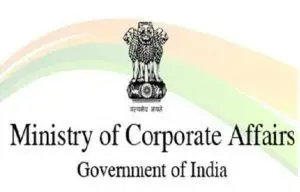Takeover: A Corporate Restructuring
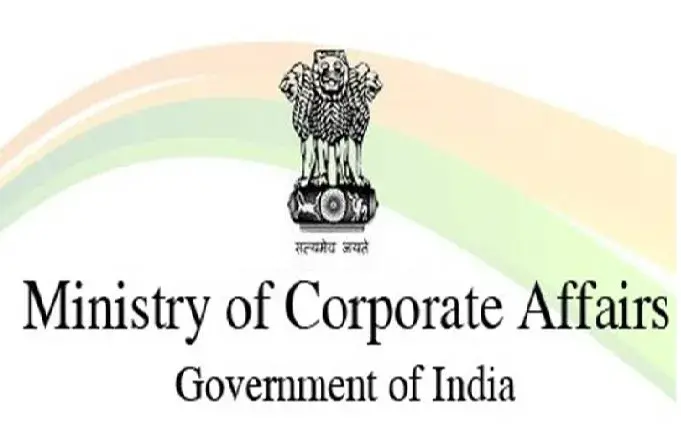 In May 2018, Tata Steel acquired Bhushan Steel (BSL) through its wholly-owned subsidiary Bamnipal Steel Ltd (BNPL). Tata Steel stated that it has taken a controlling stake of 72.65% in BSL and paid the admitted corporate insolvency costs and employee dues, as required under the Insolvency and Bankruptcy Code, 2016.
In May 2018, Tata Steel acquired Bhushan Steel (BSL) through its wholly-owned subsidiary Bamnipal Steel Ltd (BNPL). Tata Steel stated that it has taken a controlling stake of 72.65% in BSL and paid the admitted corporate insolvency costs and employee dues, as required under the Insolvency and Bankruptcy Code, 2016.
India: Safeguarding of domestic Solar Panels
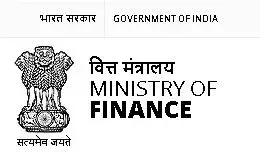 The Department of Revenue, Ministry of Finance vide its notification dated July 30, 2018, intimated regarding the imposition of safeguard duty as recommended by the Directorate General of Trade Remedies (DGTR), in the final findings.
The Department of Revenue, Ministry of Finance vide its notification dated July 30, 2018, intimated regarding the imposition of safeguard duty as recommended by the Directorate General of Trade Remedies (DGTR), in the final findings.
India: IRDA directs insurers to cover mental illness
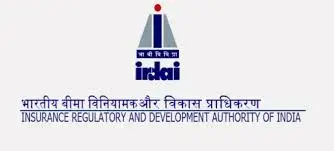 The Insurance Regulatory and Development Authority directed all insurers to make provision for medical insurance for treatment of mental illness on the same basis as is available for treatment of physical illness.
The Insurance Regulatory and Development Authority directed all insurers to make provision for medical insurance for treatment of mental illness on the same basis as is available for treatment of physical illness.
India: Responsibility of the E-waste Producer
 In order to regulate the proper disposal of the electric and electronic products once their life has been exhausted and they are no longer good for use, the Government enforced the E-Waste (Management) Rules, 2016 (hereinafter referred to as the “e-waste rules”).
In order to regulate the proper disposal of the electric and electronic products once their life has been exhausted and they are no longer good for use, the Government enforced the E-Waste (Management) Rules, 2016 (hereinafter referred to as the “e-waste rules”).
India: Provisions of Companies Amendment Act enforced.
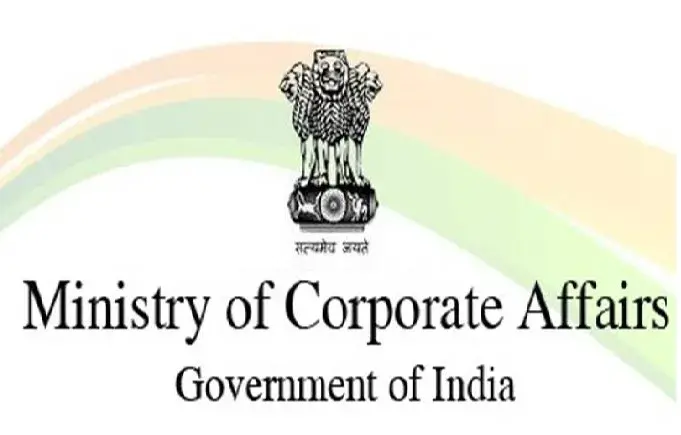 The Government enforced the Companies Act, 2013 (hereinafter referred to as “Companies Act”) for the purpose of regulation of the affairs of the company in a smooth and efficient manner.
The Government enforced the Companies Act, 2013 (hereinafter referred to as “Companies Act”) for the purpose of regulation of the affairs of the company in a smooth and efficient manner.
Takeover: A Corporate Restructuring
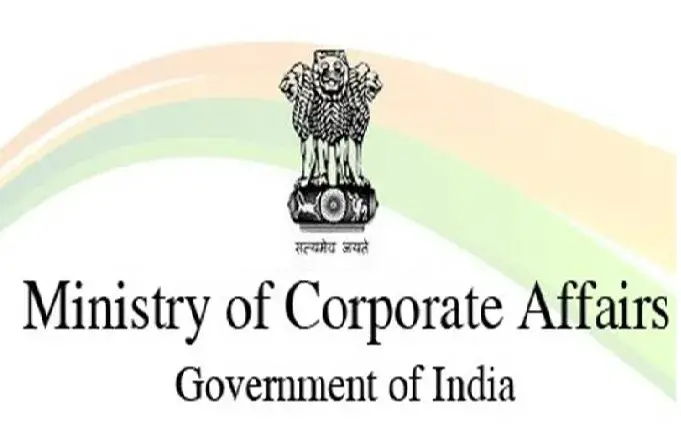
Source: www.mca.gov.in
In the age of growing competition in the market and ever changing fast paced technologies, the business houses face different challenges some of which may question their very existence. With changing times and circumstances, the corporates are required to undergo a structural modification in order to continue their working and to save their decaying and old outlook. The old standards need modifications rejuvenating with latest thoughts and new fashionable products. It is seen often, recourses to mergers and acquisitions are taken. Resulting takeovers with restructuring the basic framework to move with new wave.
While mergers unify two or more existing entities into a new one, acquisition allows the financially stronger entity to take control of the weaker one.
Acquisition or takeover, may be hostile or friendly, permits the purchase of controlling stake in one entity by the others. Acquisition may be by acquiring shares or assets/ liabilities of the other entity.
Regulation of Takeovers
- Section 230(11) of the Companies Act, 2013 states that any compromise or arrangement may include takeover offer made in such manner as may be prescribed. In case of listed companies, takeover offer shall be as per the regulations framed by the Securities and Exchange Board.
- Section 259(3) of the Companies Act, 2013 states that the Tribunal may direct the company administrator to take over the assets or management of the company and for the purpose of assisting him in the management of the company, the company administrator may, with the approval of the Tribunal, engage the services of suitable expert or experts.
- Section 261 of the Companies Act, 2013 states that the company administrator shall prepare or cause to be prepared a scheme of revival and rehabilitation (including takeover of the sick company by a solvent company) of the sick company after considering the draft scheme filed along with the application under Section 254
- Takeovers also are governed by the Securities and Exchange Board of India (Substantial Acquisition of Shares and Takeovers) Regulations, 2011, which restricts and regulates both direct and indirect acquisitions of shares or voting rights in, and control over a target company.
In May 2018, Tata Steel acquired Bhushan Steel (BSL) through its wholly-owned subsidiary Bamnipal Steel Ltd (BNPL). Tata Steel stated that it has taken a controlling stake of 72.65% in BSL and paid the admitted corporate insolvency costs and employee dues, as required under the Insolvency and Bankruptcy Code, 2016.
India: Safeguarding of domestic Solar Panels
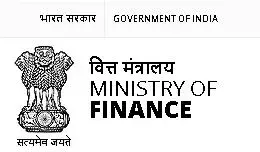
With the growing awareness and need to take recourse to non-renewable sources of energy, Solar power is gaining increasing popularity. India, receiving abundant sunlight, owing to its geographical location, can utilize the solar power to carry out numerous functions which would otherwise depend on input of fuels. With its conscious choice to use significantly more clean energy to fuel its growth, India is contributing to global efforts to save the planet from the effects of climate change. The contribution to the efficient solar power utilization comes from its various States like Rajasthan, Gujrat, Madhya Pradesh, Maharashtra, Andhra Pradesh, Karnataka, Tamil Nadu and Kerala.
Although, India uses solar energy to a great extent, more than 90% of solar panels and modules used in Indian solar projects are imported. Therefore, India still relies on other nations for the utilization of solar power.
In the light of above, the Department of Revenue, Ministry of Finance vide its notification dated July 30, 2018, intimated regarding the imposition of safeguard duty as recommended by the Directorate General of Trade Remedies (DGTR), in the final findings. As per the said notification, the tariff on the imported solar panels would be applicable in the manner stated below:
- 25% ad valorem minus anti-dumping duty payable, if any for imports between July 30, 2018 to July 29, 2019.
- 20% ad valorem minus anti-dumping duty payable, if any for imports between July 30, 2019 to January 29, 2020.
- 15% ad valorem minus anti-dumping duty payable, if any for imports between January 30, 2020 to July 29, 2020.
It clearly specified that said safeguard duty shall not apply to imports from developing countries except China and Malaysia.
By this step, the Government once again emphasizes on its “ encouraging and reposing faith in the domestic manufacturers to enter into the field of solar power being a self-reliant and self-sufficient nation.
India: IRDA directs insurers to cover mental illness
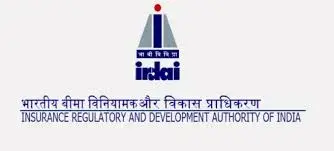
Source:
www.irdai.gov.in
Insurance is the umbrella which mitigates the loss caused by an uncertain event. A contract of insurance is an agreement whereby one party undertakes to pay a certain sum of money on the occurrence of any contingency. Being a contract of indemnity, it is based on the principle of utmost good faith. In today’s world, the insurance companies offer insurance policies of varied nature including life, health, fire, marine, etc. Individuals purchase such policies either in their individual capacity or the employee friendly organizations may extend such cover as perks of the employment.
In India, the Insurance Regulatory and Development Authority (hereinafter referred to as “IRDA”) regulates, promotes and ensures orderly growth of the insurance industry, protection of the policy holders and settlement of insurance claims. Medical insurance facilities in India cover wellness and preventive hospitalization expenses and treatment costs. Different policies cover health issues of varied nature including various diseases. In furtherance to this as well as the Mental Healthcare Act,2017 which came into force on May 29, 2018, directed all insurers to make provision for medical insurance for treatment of mental illness on the same basis as is available for treatment of physical illness.
By this approach, the IRDA aims to provide equal treatment opportunities for patients with mental ailments thereby maintaining their dignity. This places importance on the need to emphasize the care to be taken with respect to mental health. It also adds to the responsibilities of the insurance companies not to shirk from their duty towards the health (both mental and physical) of its policy holders.
India: Responsibility of the E-waste Producer

Source:
www.envfor.nic.in
With the passage of time, human efforts have often resulted in simplification of the living standards. The invention of electricity and the facility provided using this means has been immense and great. Our lives are incomplete without these devices. These machines have made our everyday life easier. Insomuch as the electrical gadgets as well as electronic products have been beneficial to us, but such equipment disposal, when out of order or need to be thrown out, have always been an issue of great concern as such products comprise of hazardous and toxic components responsible for environmental pollution.
In order to regulate the proper disposal of the electric and electronic products once their life has been exhausted and they are no longer good for use, the Government enforced the E-Waste (Management) Rules, 2016 (hereinafter referred to as the “e-waste rules”). The said e-waste rules impose obligations on the producers of wastes of the electric/electronic products (hereinafter referred to as “e-waste”) in order to ensure that they are properly discarded without causing harm to the environment.
E-waste-producer
As per the provisions of Rule 3 (cc) of the e-waste rules, a producer of e-waste is any person who, irrespective of the selling technique used such as dealer, retailer, e-retailer, etc.;
- manufactures and offers to sell electrical and electronic equipment and their components or consumables or parts or spares under its own brand; or
- offers to sell under its own brand, assembled electrical and electronic equipment and their components or consumables or parts or spares produced by other manufacturers or suppliers; or
- offers to sell imported electrical and electronic equipment and their components or consumables or parts or spares;
Duties of the Producer
- implementation of the extended producer responsibility plan stating the process of collection and channelization of e-waste generated, its appropriate treatment and disposal methods, public awareness programs, directions for handling/disposal of equipment after use, composition of the hazardous elements therein, etc.;
- to provide information on the implementation of Deposit Refund Scheme to ensure collection of end-of-life products and their channelization to authorised dismantlers or recyclers;
- import of electrical and electronic equipment only after having obtained Extended Producer Responsibility authorisation;
- maintaining records for e-waste handled or generated to be made available to the Central Pollution Control Board;
- filing annual returns providing details of the e-waste generated, treated, dismantled and recycled to the Central Pollution Control Board;
- apply to the Central Pollution Control Board for the Extended Producer Responsibility – Authorisation.
With our increasing dependence on electrical and electronic products in the form of various equipment including television, washing machines, mobile phones, laptops, refrigerators, etc., it is very important to ascertain that all such products are properly disposed after the exhaustion of their life period. The legislative approach in this regard enables the adequate usage and clearance of the wastes so generated so that we have access to a cleaner and healthy environment.
India: Responsibility of the E-waste Producer
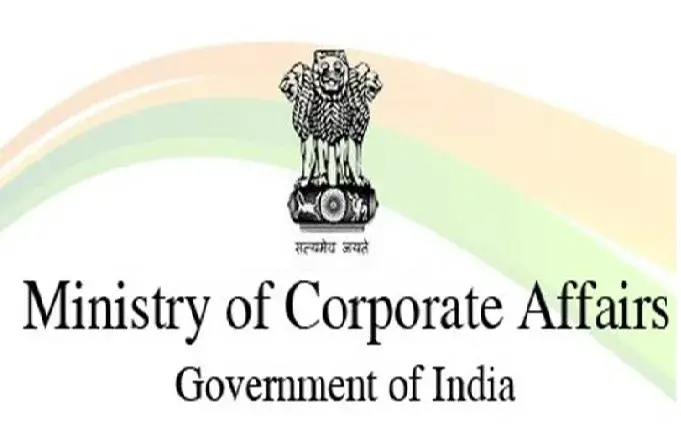
>Source: www.mca.gov.in
The Government enforced the Companies Act, 2013 (hereinafter referred to as “Companies Act”) for the purpose of regulation of the affairs of the company in a smooth and efficient manner. However, the Companies (Amendment) Act, 2017, (hereinafter referred to as “Amendment Act”) was passed on January 3, 2018, to further amend the provisions of the Companies Act.
- A recent notification by the Ministry of Corporate Affairs dated July 31, 2018, has effectuated the provisions of Section 36 of the Amendment Act whereby amendment has been brought to Section 134 of the Companies Act dealing with Financial statement, Board ‘s Report, etc. The amendments to this section are as follows:
- Where one of the persons authorizing the chairperson of the company to sign the financial statement is the Chief Executive Officer, he may not necessarily be the director of the same. [Section 134(1)].
- The report by the Board of Directors to be laid before in a company general meeting shall include the web address (instead of its extracts), if any, where annual return referred to in sub-section (3) of section 92 has been placed. [Section 134(3)(a)].
- The report by the Board of Directors to be laid before in a company general meeting shall include, in case of a listed company and every other public company having such paid-up share capital as may be prescribed, a statement indicating the manner in which formal annual evaluation of the performance of the Board, its Committees and of individual directors has been made. Section 134(3)(p)].
- The report by the Board of Directors to be laid before in a company general meeting shall include such other matters as may be prescribed. “Provided that where disclosures referred to in this sub-section have been included in the financial statements, such disclosures shall be referred to instead of being repeated in the Board’s report:
Provided further that where the policy referred to in clause Section 134(3)(e) (company is covered under defects in appointment of directors) or clause Section 134(3)(o) (the details about corporate social responsibility) is made available on company’s website, if any, it shall be sufficient compliance of the requirements under such clauses if the salient features of the policy and any change therein are specified in brief in the Board’s report and the web-address is indicated therein at which the complete policy is available. - A new provision, Section 134(3A) has been introduced which states that the Central Government may prescribe an abridged Board’s report, for the purpose of compliance with this section by One Person Company or small company.
- Another notification dated August 7, 2018, issued by the Ministry of Corporate Affairs allowed the provisions of Section 10 of the Amendment Act to come into force. The said section has substituted Section 42 of the Act which deals with offer or invitation for subscription of securities on private placement in the below stated manner-
- A company may, subject to the provisions of this section, make a private placement of securities.
- A private placement shall be made only to a select group of persons who have been identified by the Board (herein referred to as “identified persons”), whose number shall not exceed fifty or such higher number as may be prescribed [excluding the qualified institutional buyers and employees of the company being offered securities under a scheme of employees stock option in terms of provisions of clause (b) of sub-section (1) of section 62], in a financial year subject to such conditions as may be prescribed.
- A company making private placement shall issue private placement offer and application in such form and manner as may be prescribed to identified persons, whose names and addresses are recorded by the company in such manner as may be prescribed: Provided that the private placement offer and application shall not carry any right of renunciation.Explanation I. —”private placement” means any offer or invitation to subscribe or issue of securities to a select group of persons by a company (other than by way of public offer) through private placement offer-cum-application, which satisfies the conditions specified in this section.
Explanation II. —”qualified institutional buyer” means the qualified institutional buyer as defined in the Securities and Exchange Board of India (Issue of Capital and Disclosure Requirements) Regulations, 2009, as amended from time to time, made under the Securities and Exchange Board of India Act, 1992.
Explanation III.—If a company, listed or unlisted, makes an offer to allot or invites subscription, or allots, or enters into an agreement to allot, securities to more than the prescribed number of persons, whether the payment for the securities has been received or not or whether the company intends to list its securities or not on any recognised stock exchange in or outside India, the same shall be deemed to be an offer to the public and shall accordingly be governed by the provisions of Part I of this Chapter
- Every identified person willing to subscribe to the private placement issue shall apply in the private placement and application issued to such person along with subscription money paid either by cheque or demand draft or other banking channel and not by cash: Provided that a company shall not utilise monies raised through private placement unless allotment is made and the return of allotment is filed with the Registrar in accordance with sub-section (8).
- No fresh offer or invitation under this section shall be made unless the allotments with respect to any offer or invitation made earlier have been completed or that offer or invitation has been withdrawn or abandoned by the company: Provided that, subject to the maximum number of identified persons under sub-section (2), a company may, at any time, make more than one issue of securities to such class of identified persons as may be prescribed.
- A company making an offer or invitation under this section shall allot its securities within sixty days from the date of receipt of the application money for such securities and if the company is not able to allot the securities within that period, it shall repay the application money to the subscribers within fifteen days from the expiry of sixty days and if the company fails to repay the application money within the aforesaid period, it shall be liable to repay that money with interest at the rate of twelve per cent. per annum from the expiry of the sixtieth day:
Provided that monies received on application under this section shall be kept in a separate bank account in a scheduled bank and shall not be utilised for any purpose other than— (a) for adjustment against allotment of securities; or (b) for the repayment of monies where the company is unable to allot securities. - (No company issuing securities under this section shall release any public advertisements or utilise any media, marketing or distribution channels or agents to inform the public at large about such an issue.
- A company making any allotment of securities under this section, shall file with the Registrar a return of allotment within fifteen days from the date of the allotment in such manner as may be prescribed, including a complete list of all allottees, with their full names, addresses, number of securities allotted and such other relevant information as may be prescribed.
- If a company defaults in filing the return of allotment within the period prescribed under sub-section (8), the company, its promoters and directors shall be liable to a penalty for each default of one thousand rupees for each day during which such default continues but not exceeding twenty-five lakh rupees.
- Subject to sub-section (11), if a company makes an offer or accepts monies in contravention of this section, the company, its promoters and directors shall be liable for a penalty which may extend to the amount raised through the private placement or two crore rupees, whichever is lower, and the company shall also refund all monies with interest as specified in sub-section (6) to subscribers within a period of thirty days of the order imposing the penalty.
- Notwithstanding anything contained in sub-section (9) and sub-section (10), any private placement issue not made in compliance of the provisions of sub-section (2) shall be deemed to be a public offer and all the provisions of this Act and the Securities Contracts (Regulation) Act, 1956 and the Securities and Exchange Board of India Act, 1992 shall be applicable.’.


